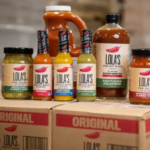Wall Street banks, including Goldman Sachs Group Inc. and Citigroup Inc., are rushing to issue U.S. dollar bonds in Taiwan after a rule change unlocked $586 billion of funds held by the island’s insurance companies.
Goldman sold $974 million of 30-year notes last month in the largest such issuance on the island, leading $7.3 billion in greenback debt offerings this year, versus zero a year earlier. J.P. Morgan Securities LLC estimates U.S. issuers can obtain lower costs than they would at home, after lawmakers in May excluded locally issued foreign-currency bonds from a 45 percent cap on the amount insurance firms can invest in overseas assets.
Taiwanese insurers’ yearly premium income has more than doubled in the past decade as China’s export-manufacturing boom boosted the island’s wealth. Their hunt for fixed-income investments has cut the 10-year sovereign yield 116 basis points in the past 10 years to 1.71 percent, the 13th-lowest globally, compared with 2.49 percent in the U.S.
“With Taiwan’s very low benchmark-rate environment, a lot of domestic-currency investments have low yields,” said Godwin Chang, head of Taiwan at Société Génerale AG, which sold $1.21 billion of bonds in the territory this year. “Life insurers are better off having more foreign-currency investments.”
Negative Spread
The central bank cut its policy rate to a record low 1.25 percent in 2009 and maintained it at 1.875 percent in the past 13 quarters. As domestic rates fell, life insurance firms boosted holdings of foreign assets to 44 percent as of June 30 from 38 percent at the end of 2011, according to the Taiwan Insurance Institute.
The insurance industry’s 3.8 percent weighted average liability cost was significantly higher than its recurring investment yield of 2.8 percent in 2013, according to a June presentation by the financial regulator.
Goldman issued its zero-coupon, 30-year bonds at a price to yield 4.96 percent last week. Morgan Stanley’s notes due 2044 paid a coupon of 4.7 percent and Citigroup’s similar-maturity, zero-coupon debt was sold at 4.88 percent. All of the dollar notes sold on the island since May’s amendment are callable by the issuer and mature in 20 or 30 years, while 74 percent pay zero coupon, according to data compiled by Bloomberg. Foreign- currency notes issued in Taiwan are called Formosa bonds.
Verizon Communications Inc., the biggest U.S. wireless carrier, will issue $870 million of 30-year callable notes in Taiwan with a 4.8 percent coupon on Sept. 23, according to Bloomberg data. Verizon is the first non-financial firm to sell dollar debt on the island in the past 13 years.
Callable Bonds
Callable notes are popular among insurers, which can demand higher yields to boost returns, J.P. Morgan strategists led by Joshua Younger wrote in an Aug. 22 note.
“Because they are considered domestic investments from a regulatory perspective, Formosa bonds are generally compared against Taiwan dollar-denominated fixed-income products,” the strategists wrote. “With Taiwan dollar rates quite low by comparison, yield-sensitive investors are likely to lower their return targets for U.S. dollar callable Formosa bonds relative to those registered overseas.”
The May 20 amendment also spurred issuances in yuan bonds, with lenders such as Agricultural Bank of China Ltd. and Bank of China Ltd. selling 9.3 billion yuan ($1.5 billion) of debt in Taiwan since then, compared with 1.5 billion yuan [$242 million] in the first four months of 2014.
Insurer Interest
Local insurers’ total annual premium income grew an average 8 percent in each of the last 10 years to NT$2.7 trillion ($90 billion) in 2013 from NT$1.2 trillion [$40 billion] in 2003, according to Financial Supervisory Commission data. Premiums collected added up to 17.6 percent of gross domestic product in 2013, the world’s highest penetration rate, a Swiss Re Ltd. report shows.
For insurers whose investments abroad haven’t yet neared the 45 percent limit, the locally issued foreign-currency bonds are not the most attractive. Cathay Life Insurance Co., the largest in the industry with NT$4.3 trillion [$143 billion] of assets, has bought very few of the foreign-currency notes as they offer rates lower than similar securities overseas, executive vice president Joseph Wang said at an Aug. 29 briefing.
Other companies have been more enthusiastic. Shinkong Insurance Co. has spent NT$42.8 billion [$14.2 billion] on locally issued foreign debt and plans to buy more to boost returns, according to an Aug. 28 presentation. Fubon Life Insurance Co. aims to increase its holdings to NT$100 billion [$3.33 billion] within a year, the Economic Daily News reported on Aug. 22.
All of the dollar debt sold in Taiwan since May’s rule change has been bought by the insurance industry, according to Mark Liu, Taipei-based head of global markets at Société Génerale. The French bank is speaking with European companies both in and outside the financial sector regarding bond issuances in Taiwan, Chang said.
Expectations Tempered
This may be a good time to sell debt as borrowing costs will probably rise. Eight of 18 analysts in a Bloomberg poll expect Taiwan to raise its policy rate at least once by the end of this year. The island’s economy is showing signs of a recovery this year. Data yesterday showed exports grew 9.6 percent in August, the most in 20 months. Sixty-six percent of Taiwan’s shipments went to China, which this week posted a record trade surplus for August. In the U.S., 62 of 74 economists in another survey see a Federal Reserve interest-rate increase by the third quarter of next year.
Investors have already tempered their expectations for a rate increase, according to Cosmas Lu, chief executive officer at the Taipei branch of Barclays Plc, which lists its $600 million of 30-year bonds on the bond exchange GreTai Securities Market today. Benchmark 10-year Treasury yields have declined 54 basis points in 2014 as Fed Chair Janet Yellen signaled the monetary authority’s commitment to low borrowing costs amid mixed U.S. economic data.
“Taiwan’s investors have been pretty quiet in the first half of the year, waiting for interest rates to rise, which didn’t happen,” Lu said in an Aug. 27 phone interview. “So they’re very cash-rich and they realize they can’t wait forever. There’s definitely very big demand from investors.”
Was this article valuable?
Here are more articles you may enjoy.


 Grandson Not Covered Under Grandma’s Home Insurance
Grandson Not Covered Under Grandma’s Home Insurance  Hot Sauce Company Sues Manufacturer Over Exploding Bottles
Hot Sauce Company Sues Manufacturer Over Exploding Bottles  Florida Board Drafting Rules That Could Stem Bogus Engineering Reports in Claims
Florida Board Drafting Rules That Could Stem Bogus Engineering Reports in Claims  Updated: 6 Killed in Private Plane Crash at Maine Airport
Updated: 6 Killed in Private Plane Crash at Maine Airport 

